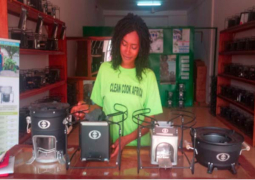As part of its drive to provide technical and capacity enhancement for its membership, the umbrella body of The Association of Non-governmental Organizations (TANGO) in the Gambia has recently conducted a five-day capacity-building training on data collection and management for its members, at the TANGOconference hall.
The participants were taken through a series of modules, ranging from sampling, questionnaire design, data processing and analysis, report writing, report presentation and research methods during the programme.
NGOs are heavily involved in national endeavours and they are complementing government’s efforts in realising sustainable development and data collection and management, which is the key to national development, according to Mr. Madi Jobarteh, deputy Executive Director and Programme Manager of TANGO.
In his closing remarks, Madi said, data and information is the key for any developing nation, because it helps the government in planning for any future undertakings, sustainable development and assessments conducted in 2011.
Noting that the training is meant to build the capacity of their members on how they collect and manage data in the future, he said, data managing and analyzing is key and that data could be collected at different levels, using different approaches and tools.
“And we are moving to evidence-based management and advocacy, you cannot talk about anything without reliable data,” he stated and then challenged the participants to take the training seriously to be able to improve the capacity of their organisation.
Mr. Kebba K. Barrow, Programme Officer for networking at TANGO welcomed the participants and reiterated that data collection is the key in this world.
“The expertise from the institution that is responsible for collating and producing data on all aspects of life today is going to hold this training for you,” he added.
Mr. Alieu Bahoum of GBoS, who advised the participants to take the training seriously, said “we live in a world that is driven by information; we need information to better utilise for programmes.”




